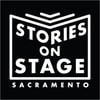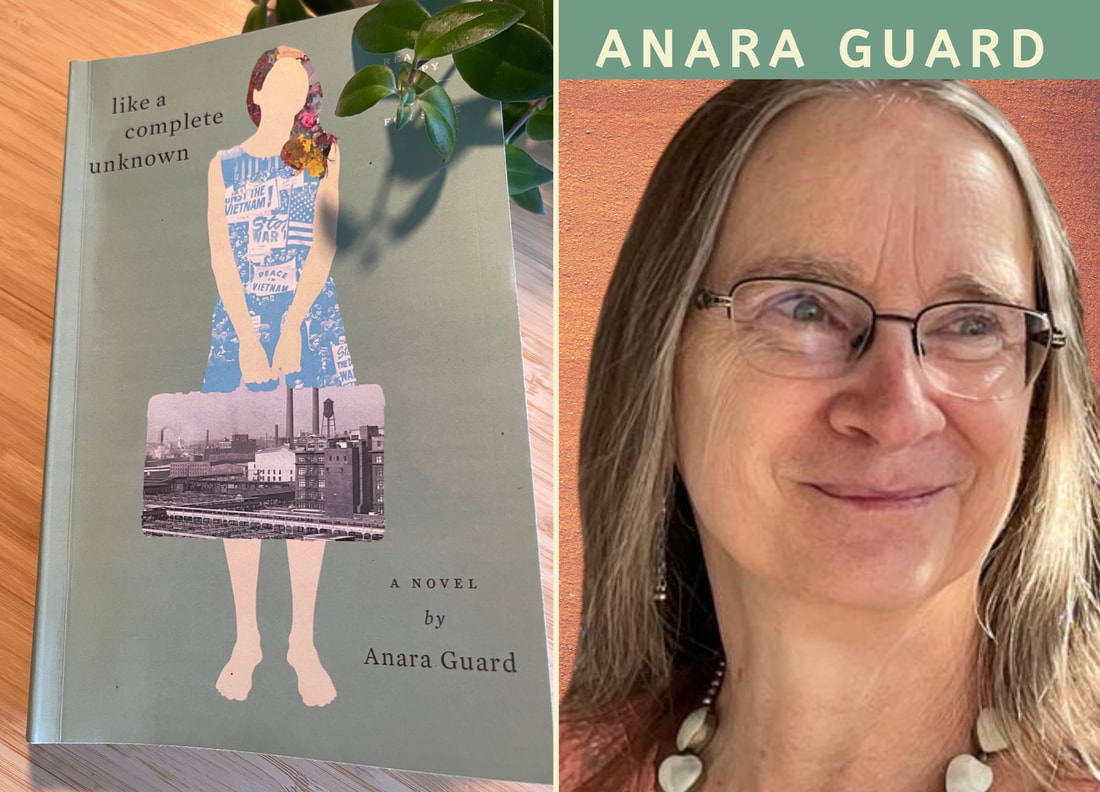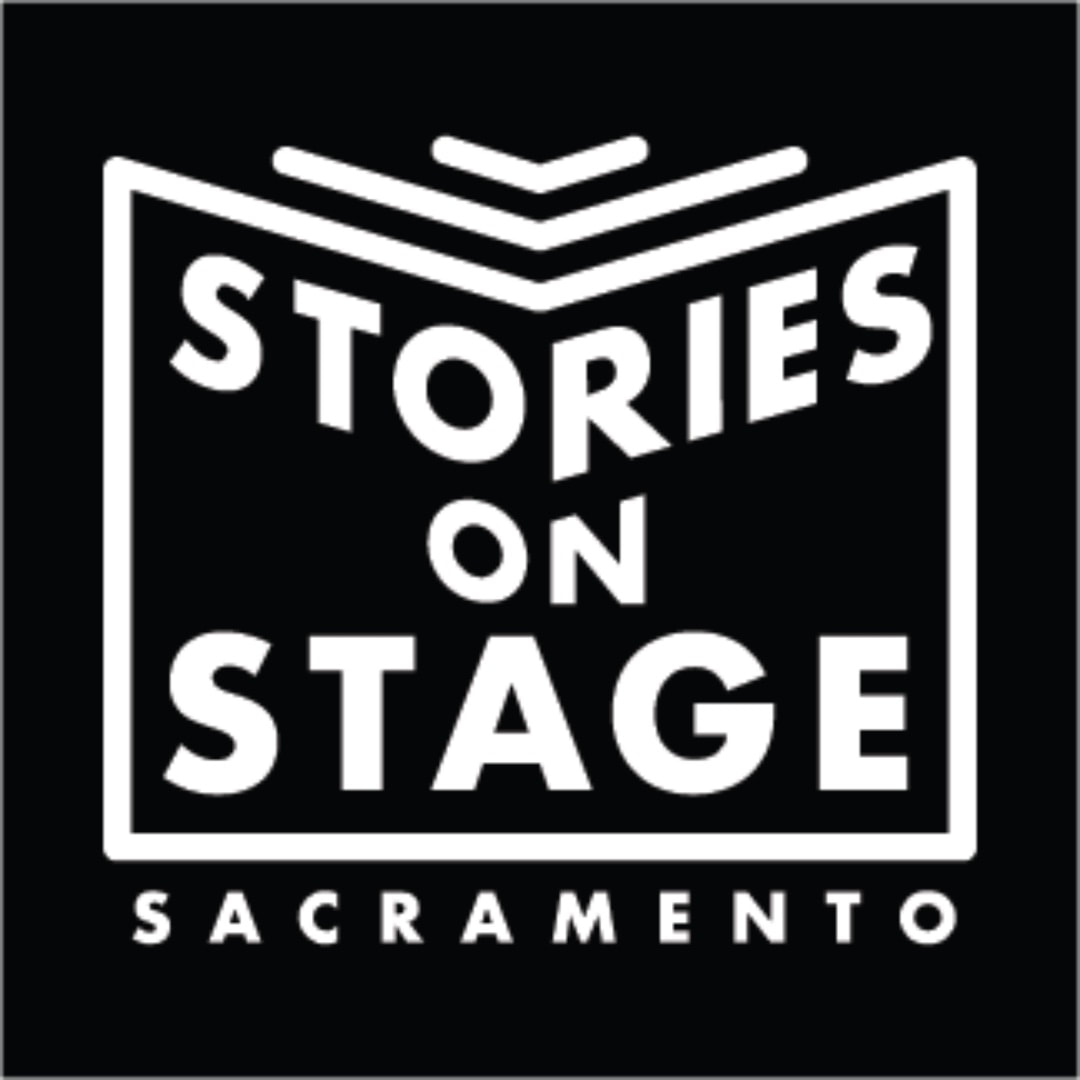|
Chicago, Chicago, that toddlin’ town…
Sue Staats talks with one of our June featured writers, Anara Guard, about setting her novel in her home town, sixties music, and chance encounters…. To interview Anara Guard is to discover a life well lived and filled with choices. Born in Chicago in a diverse urban community, she attended Kenyon college in rural Ohio, lived in Minneapolis, moved to the Boston area for the warmer weather (!!!), and among many other jobs worked as a librarian and as a consultant on violence prevention and suicide prevention and then, about twelve years ago, upended everything and moved to Sacramento, wisely deciding to give up the snow, she says, but mostly for love, as her husband lives here and they’d been supporting United Airlines for far too long. She’s been writing since she was a child, first as a poet, winning the John Crowe Ransom award as a student at Kenyon College, then as an author of children’s books, short stories, and poetry, but Like A Complete Unknown is her first novel. And, in a return to her roots, Chicago is the setting for this tender, compassionate story about a young runaway and a widowed doctor, and their intertwined tale of happenstance and second chances. The setting, Chicago in the 1960s, vibrates with authenticity, and I wondered: was there something in Anara’s life, some experience, that sparked this novel? Anara I think there were two things. I originally conceived of a collection of short stories all set in one office building in downtown Chicago that had a whole mixture of doctors and dentists and accountants and lawyers and jewelers and so forth. I was writing this series of stories, and I had one about the elevator operator and one was about a doctor and my thought was that this barefoot girl would come in and then disappear again. But she would end up being a catalyst for him changing his life. And that was it. She would just make one little nameless appearance and be gone. And I realized as I was writing that the story was set in the sixties, and I wanted to take the Disney aspect out of that time period. You know, the sixties have been recast as flowers and bell bottoms and hippie beads and drugs, without recognizing the full scope of the peace movement, and how it was really fueled by people of the age of the doctor in my story, by priests and housewives, not just college students but people of all ages. In the same way that Roe v Wade and fighting for reproductive freedoms didn't just come from the young women who were mostly affected, and the anti-war movement wasn’t only fueled by the young men whose lives were on the line. I became interested in looking at that time period from the point of view of someone who was older than 18. And then, of course, the short story kept growing. Sue Yes, I was struck and touched by the role that the older characters play in this novel, how they’re moved to help the younger woman and it ends up changing them profoundly. And there’s something else that moves through the story—the hum of Sixties music. Even the little snippets at the beginning of chapters hint at the songs that were everywhere at that time. Was that always in the book, or was it something that occurred to you later? Anara I think it was always there. I’d be driving around town, and if a song would come on the radio, it would spark certain memories and then I’d be driving dangerously, jotting down the song. One particular song would remind me of being at the beach, or a different song would remind me of being at a rally or of a person, you know, that boy I had a crush on, or another boy I had a crush on. There were so many sensory memories for me that are tied to the songs. Sometimes it was really specific to the words and other times it would just be the tune itself. I gathered a long song list and I would sometimes deliberately play the music when I was writing, often because the songs resonated with what was happening in that particular chapter. Sue You said this started as a short story about a doctor, and then the girl showed up. Did this surprise you, and were you surprised at how the characters developed, especially some of the minor characters, like the doctor’s secretary, Harlow, a peace activist, Louise, a waitress, and Huck, the young drifter? Anara Robert, the doctor and Katya, the young girl, were the easiest ones to come to me. Next were Huck and Harlow, the two young men. I've known young men like both of them. So that was easy. And then, Mrs. Watkins, his secretary. I think all of us have had the unfortunate experience of encountering a guard-dog sort of personality who answers the phone or is in charge of the desk when you're trying to get in to see someone. And I've often wondered, who are those people, and why are they so protective of their domain? And isn't their job to be welcoming you and helping you instead of putting up these barriers? I was interested in trying to get into her head. Louise, the waitress was the last one to really get fully fleshed out. I wasn't sure what to do with her for a while. I needed her to have more to her than just being a waitress. Sue I love how you developed Louise and Robert’s relationship. It felt very organic and natural. What about this novel is based on your own experience? Obviously the setting of Chicago, but is there anything that came out of your lived life? Anara Really, more observations than direct experiences. But there were some incidents: when I was 17 or so I was on a Greyhound bus going from LA to Albuquerque and the only other young teen on the bus sat next to me and she was probably 15 and she was going home to Barstow, California from visiting her grandparents. And she told me how she had read about hippies in Time and Newsweek, but she'd never met one. It was clear she knew she was supposed to disapprove of them, but then she whispered with this tremendous wistfulness that sometimes she wished she could be free like them. And then she got off the bus in Barstow and trudged away, back to a home life that was clearly constrained. And I always wondered what happened to her, if she was able to get some of that freedom and independence. Sue What’s striking about what you just said is that you, yourself were only seventeen. And you’ve saved it all this time, tucked it away, waiting for a time it bloomed into a character. Because that young girl is Katya, right? Anara Exactly. And here’s another experience that produced another character. I didn't go to college right away. I took a year between high school and college. And I was working in a coffee house, and there was a table with four women who seemed old to me at the time and, you know, they were probably 40, and I went to clear the table and one of them who had beautiful silver earrings and seemed a little exotic said, you're a Virgo, aren't you? And I said, yeah, and they all laughed. Mm-hmm And she said, I just read it in your palm. And then she took my hand by the wrist and she looked at my palm and then she looked at me and she said, do you know what your trouble is? And no, I didn't. And she said, you don't know how to say no. And then she said, say it and the table was very quiet. And I said, no, you know, because I was a pretty shy, girl, and she said, now say it like, you mean it. So I tried again and then she said, now go home and practice in the mirror every day and then you'll be able to say it to other people. So that, of course stuck with me. Sue I would guess so! Anara A fabulous life lesson. Sue And a fantastic character came out of it, which I'm assuming is Glorious (a fortune teller who helps Katya when she most needs it.) Anara Yes. That was a time in my life where that kind of thing happened. But also, as I thought back on it over the years, thought of these women looking out for a much younger woman and seeing she needed to become more independent, and to have some boundaries and to be able to say no. And that was important to learn, because I think one of the downsides of the sexual revolution was that by having birth control, having the pill, it removed one of the primary excuses that girls could have for not engaging in sex when they didn't want to, weren't ready or weren't interested. And many young women I knew, once they had birth control, it was kind of like, well, I guess I don’t have any reason to say no. Sue One of the main themes is Katya’s unwanted pregnancy and all the resources women didn't have back in the sixties—stuff is beginning to look frighteningly current. When you were writing this, did you have the growing assault on women's reproductive rights in mind? Anara Yes, because it was a long time in the writing. What first seemed like a history lesson was becoming more and more real and less and less a history lesson. But I think there are some big differences between now and then, home pregnancy tests being one obvious one. We can learn if we are pregnant much sooner. And there are prescription medications available now that one can get through the mail. So there are more options available. But I think in the sixties the lack of access to legal abortion was more an issue of control—not the way it is now, where it’s so politicized. It was simply the idea that doctors shouldn’t be doing that, that women’s role was to be mothers. I don't want to get into the entire history of abortion, and the anti-choice movement, but it seems that now it's more hateful. Before it was more bureaucratic, more neutral. Now it's spiteful. But I also think it's helpful to look at our history, because it's so easy to feel like this is the shittiest it's ever been, that it's never been as bad as this. And in writing this novel, it was such a reminder to me of how assaulted young people felt in the sixties, that we didn't have the right to vote until we were 21, young men could be drafted at 18, and young women were locked out of so many jobs and education. There were so many men-only schools and clubs and restaurants and bars and on and on. So there was a lot of dread back then. It wasn't just free and easy. Sue Do you consider yourself a political writer or maybe more specifically a writer of social issues? What inspires you? What do you primarily write about? Anara I don't consider myself a political writer. Like A Complete Unknown tackled a lot of social issues, but the next one I’m working on isn’t about social issues. It’s much more about identity and sisterhood, how to live in the world when you're regarded as essentially different. I suppose one could make a social issue connection there, but that's not my primary purpose. But as you know I grew up in an activist environment, and have been engaged with social issues for my whole life. So, you know, it's probably just part of the milieu, whether I mean for it to be or not. Sue You’re published by a small press, New Wind Publishing. I see they’re in Sacramento but otherwise I can’t find out a lot about them. Anara Sure. You're looking at half of it, and my husband Dave is the other half. Sue I’m curious how New Wind got started. Anara Dave started it a long time ago, I don't remember exactly what year. Its biggest success was a medical guide to the internet he had written, when the internet was young and health professionals needed to know how to use it and where they could find information. It became quite a best seller in nursing schools and medical schools. There was a Spanish version, there was a pocket guide version. He did a number of other books, including a math book, a book about his cats, just odd things, and then shelved the publishing business for a long time. Sue What revived it? Anara We are friends with Marilyn Reynolds, another local writer who had a 10-book series of young adult novels, which I had run across when I worked in the public library. Her publisher was retiring, and she didn't want her books to go out of print. And we thought, we'll revive New Wind and reissue Marilyn's books, which we’ve done, along with an 11th one in the series. We have a couple of books coming out this fall, a collection of essays by Marilyn and an historical novel by another Sacramento writer, Lois Ann Abraham. Sue And New Wind has published your short story collection Remedies for Hunger and your poetry collection Hand on my Heart, as well. I want to say, I think you’ve done beautiful job with Like A Complete Unknown. I love the cover, and the book, and I’m looking forward to hearing an excerpt read at Stories on Stage. And speaking of, how do you feel about having your work read by somebody other than yourself? Anara Oh, I'm so looking forward to it. I know every writer gets up at Stories on Stage and says how amazing it is to hear someone else bring the voices to life or to give an accent or to emphasize the sentences a little bit differently than you would if you were reading it. So, I think it's going to be moving and I think it's going to allow me to see at least those portions of the novel in a new way. I'm greatly looking forward to it. Sue We are, too! Thanks, Anara Edited for clarity and brevity
1 Comment
|
|
Who We AreLiterature. Live!
Stories on Stage Sacramento is an award-winning, nonprofit literary performance series featuring stories by local, national and international authors performed aloud by professional actors. Designated as Best of the City 2019 by Sactown Magazine and Best Virtual Music or Entertainment Experience of 2021 by Sacramento Magazine. |
|


 RSS Feed
RSS Feed
